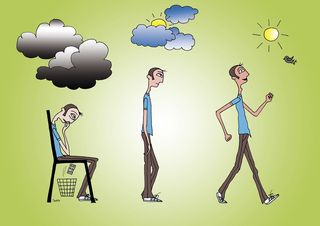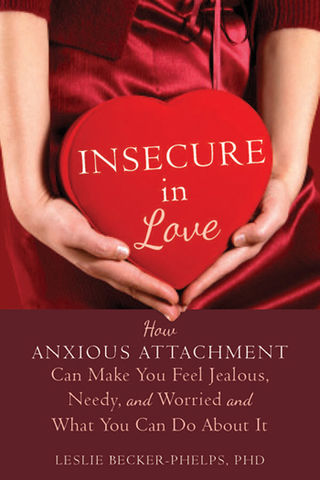Resilience
Emotional Struggles: One Concept Explains a Lot
Learning to be more resilient may set you free from your struggles.
Posted June 6, 2017

Everyone wants to know what they can do to feel better, whether they struggle with depression, anxiety, phobias, eating disorders, or some other difficulty. So, innumerable kinds of psychotherapy have developed to meet the need—with varying degrees of effectiveness. In the meantime, researchers have investigated the nature of psychological problems and found an interesting result. There seems to be one factor that underlies many problems. But because this has been found statistically, the nature of that factor is not totally clear. Yet, we have some clues.
A very plausible way to understand the research is that some people have a vulnerability to psychological struggles. This vulnerability seems to be in the areas of people dealing with themselves, others, and their environment. For instance, they don’t have a solid sense of themselves, or it is particularly biased (e.g. self-critical). As people age and stressful experiences mount, their psychological problems often increase, manifesting in different ways. For instance, an anxious person might experience depression, and later develop post-traumatic stress disorder.
Another way of thinking about this vulnerability is that it is a lack of resilience. While some people seem to naturally to right themselves no matter what life throws at them, others fall down and stay down. Research further indicates that people with a history of childhood abuse or neglect are much more likely to be in the latter group. Meanwhile, those with engaged, supportive, and emotionally mature parents often have a greater sense of well-being and are more resilient after difficult—or even traumatic—experiences.
This emotionally healthier group of people enjoys what is called “secure attachment.” They have a sense of having value as a person (not just for what they do) and that others can be relied on to be emotionally supportive. They are more comfortable with their emotions; and they are notably better able to tolerate and manage difficult ones.
This brings us back to a concept that I’ve recently written about in a series of articles: mentalizing. This is an important ability that these securely attached children develop. That is, they can understand and relate to their own and other people’s inner experiences (e.g. thoughts, feelings, desires, fantasies). This enables them to have a greater ability to be empathic, compassionate, and forgiving. As a result, they relate more positively to themselves and others, and they navigate life’s difficulties more adeptly.
Fortunately, people can learn to mentalize. As research on mentalization-based treatment has shown, people can learn to relate more openly, flexibly, and positively to themselves and others. They can move past their particular struggles to develop stable, happy, meaningful and engaging lives.
If you would like to learn more about mentalizing and some of its basic concepts, I invite you to read the following articles that I’ve written. They review the concept of mentalizing and four main dimensions of it.
Feeling Lost, Stuck or Overwhelmed? There is Hope
Feel Like a Repeating Train Wreck? Learn to See It Coming
Common Downfalls: Thinking and Feeling Too Much
Finding Happiness Through Connection
Happy & Resilient: Balancing Yourself and Your Relationships
Whatever your area of difficulty, consider addressing it first by improving your mentalizing abilities. Although it is not a cure-all, it may increase your resilience. As you improve your ability to mentalize, you may find that the intensity of your struggles decrease, enabling you to finally free yourself from them.
Leslie Becker-Phelps, Ph.D. is a clinical psychologist in private practice and is on the medical staff at Robert Wood Johnson University Hospital, Somerset in Somerville, NJ. She is also a regular contributor for the WebMD blog Relationships and is the relationship expert on WebMD’s Relationships Message Board.

Dr. Becker-Phelps is also the author of Insecure in Love and consultant psychologist for Love: The Art of Attraction.
If you would like email notification of new blog postings by Dr. Becker-Phelps, click here.
Making Change blog posts are for general educational purposes only. They may or may not be relevant for your particular situation; and they should not be relied upon as a substitute for professional assistance.
Personal change through compassionate awareness




